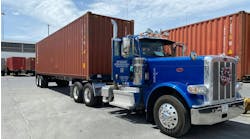According to the analysis by Armstrong & Associates, a supply chain management consulting firm, overall third-party contract logistics net revenues grew 7% in 2002, with net incomes rising 3% versus just 1.7% in 2001. Employee turnover in the 3PL industry, however, also increased markedly last year by rising to 6.9%.
Stoughton, WI-based Armstrong & Associates noted, however, that fiscal results for individual companies providing third party logistics varied widely. The firm estimated that FedEx Services contract logistics business declined by 40% in 2002, while United Parcel Service's logistics divisions posted big revenue increases. UPS Logistics was up 39% in net revenue, while revenues for UPS/Fritz, its freight forwarding operation, increased 28%.
Dedicated contract carriage net revenue increased 5.7% in 2002 after staying flat in 2001, though Armstrong & Associates noted that leasing company-related dedicated carriers continued to lose market share.
The firm noted in particular that Cardinal Logistics, J.B. Hunt, Schneider National, Swift Transportation and Werner Enterprises led this 3PL segment with double-digit revenue growth. However, Armstrong also pointed out that most of them are truckload carriers and use their truckload networks to reduce backhaul miles and costs associated with dedicated contract carriage routes.
Armstrong & Associates said three of the most profitable 3PLs were C.H. Robinson, Expeditors and Landstar Logistics, which all had double-digit, after-tax net margins coupled with significant net revenue growth in 2002.


